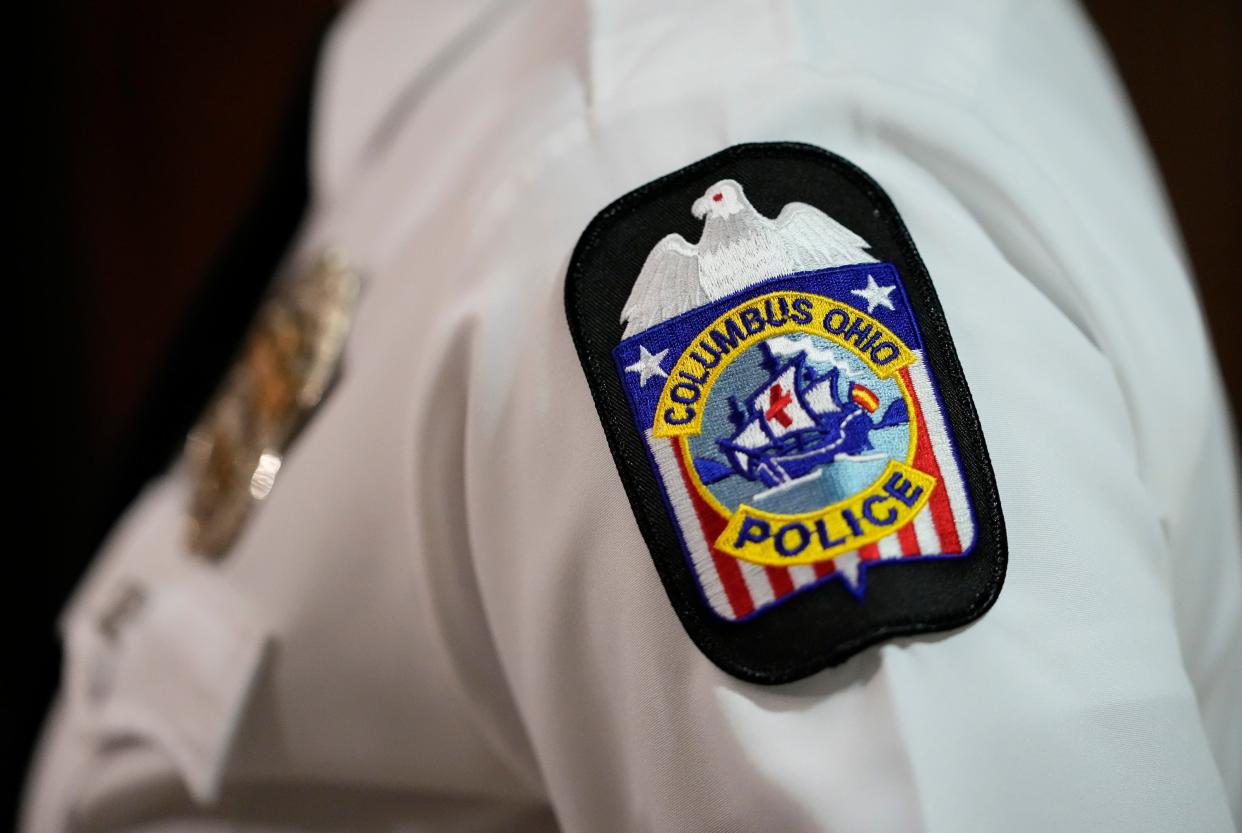Arbitrator: Some Columbus officers can't be forced to testify in police investigation

An arbitrator has issued a split ruling as to whom a former FBI agent and special prosecutor investigating allegations of criminal misconduct by Columbus police during 2020 protests can force to give testimony.
The decision comes nearly 10 months after a grievance was filed by Fraternal Order of Police Capitol City Lodge No. 9 regarding the investigation being conducted by retired FBI agent Richard Wozniak and former Franklin County Assistant Prosecutor Kathleen Garber.
The ruling, issued earlier this week by arbitrator Margaret Nancy Johnson, of Perrysville in Ashland County, said Wozniak and Garber could force witnesses to give testimony, but she limited the definition of witness. The decision does not allow for supervisors or internal affairs investigators to be forced to give evidence.
Columbus police: Mayor Ginther declined police interview about golfing weeks before saying police should talk
In her ruling, Johnson said emails provided as evidence during the arbitration hearing showed Wozniak and Garber were "clearly and concisely" looking for several sergeants to provide "information on the interviews they conducted and not what the sergeants personally observed."
Columbus police arbitration decision 1-19-22 by The Columbus Dispatch on Scribd
The grievance was tied to the probe that is focused on 19 allegations of criminal misconduct by Columbus police officers against protesters during the summer of 2020 following the murder of George Floyd in Minneapolis.
Wozniak and Garber were hired by the city in August 2020 to investigate any conduct that could be criminal in nature.
To date, three officers have been charged with misdemeanor criminal charges in connection with the civil unrest. All three officers — Traci Shaw, Phillip Walls and Sgt. Holly Kanode — have entered not guilty pleas.
Previous coverage: What we know about charges against three Columbus police officers from 2020 protests
In March 2021, Garber and Wozniak had attempted to use a section of Columbus city code that had rarely, if ever, been used before in an effort to force police supervisors to provide evidence against other officers through investigative subpoenas. However, the police union was concerned that the people Wozniak sought to interview were being asked to give testimony about information that is legally not allowed to be used against officers in criminal proceedings.
When a police officer is being interviewed for an internal investigation, they are required, under what is called a "Garrity warning," to answer all questions honestly, with the understanding that the information provided during that interview cannot be used against them in a criminal case. If officers refuse to answer questions after being provided their Garrity warning, they could be charged with insubordination. Punishment can include being fired.
Johnson's conclusion was that the city cannot force internal affairs investigators, supervisors tasked with reviewing investigations or use-of-force paperwork or union representatives who were present during investigation interviews to testify.
Keith Ferrell, president of the police union, said the union is still working to interpret the ruling and the affect it will have for officers.
The city's Department of Public Safety, which has facilitated comments from Garber in the past, did not respond to a request for comment as of 2 p.m. Wednesday.
In a written statement provided Wednesday evening to The Dispatch, Garber said "we are very pleased with this ruling."
“It confirms what we have been attempting to do all along: interview witness officers about what they observed during the protests, " Garber said in the statement provided by the Columbus Department of Public Safety. "The ability to conduct these interviews is a big step toward understanding the events that took place and determining whether the complaints made against officers that were submitted to the city amount to criminal misconduct.”
In October, the Columbus City Council approved the extension of Garber's contract "until such time as the need for outside legal counsel concludes or the parties mutually agree to terminate the contract."
Prior ruling: Arbitrator says city can't hire outsiders to investigate Columbus police misconduct
In November, Johnson sided with the police union and said the city could not bring in outside agencies to investigate administrative misconduct.
That grievance was filed after a more-than-$600,000 investigation by local law firm BakerHostetler, which was issued a no-bid, professional services contract by the city. The firm investigated 49 reports of alleged police misconduct that may have broken division policy, but was not criminal.
Of those 49 reports, only eight involved sustained allegations, and only one of those resulted in documented counseling for not filing proper paperwork.
Following the protests, a lawsuit was filed against the city by more than two dozen people who said they were hurt by excessive uses of force by police. A federal judge said officers had "run amok" during the protests and overstepped their bounds.
In December, the city agreed to pay nearly $6 million in damages to those plaintiffs, as well as agreeing to make permanent the changes in how police can respond to non-violent protests.
This article originally appeared on The Columbus Dispatch: Columbus police misconduct: Some officers won't have to testify

